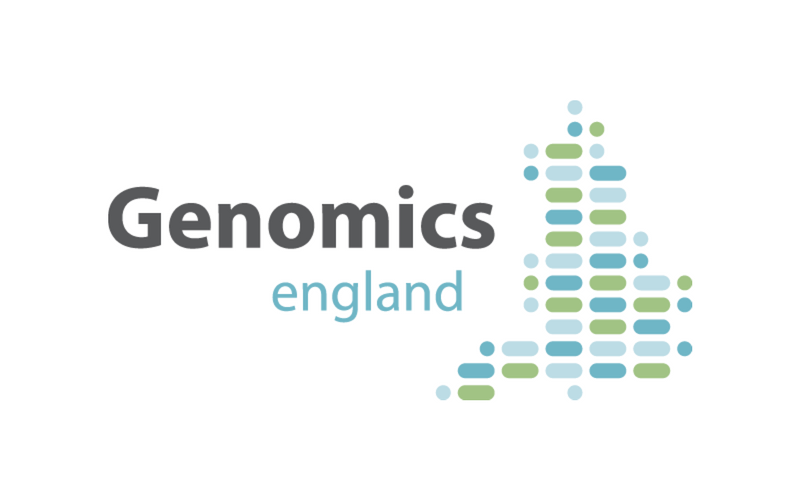Last month the Ethics and Social Science Genomics England Clinical Interpretation Partnership (GeCIP) held its first national community meeting in London. Alev Sen, an ESRC-funded PhD Fellow at Genomics England, describes some of the day’s highlights.
It’s not that often that over 100 leading ethics and social science researchers in the field of genomics come together with patients and families, clinicians, scientists, and policy-makers from across the UK to look at how we can contribute to world-class research and inform the future of genomics. It was a lively and informative day, with many more engaging online via social media.
The future of genomics
Chief Medical Officer Professor Dame Sally Davies began her opening keynote by considering the progress that had been made on realising the ‘genomic dream’ of making genomics available to more NHS patients – something she had first outlined in her 2016 annual report Generation Genome. She described the setting up of the National Genomics Board by the Secretary of State for Health to support this vision, NHS England’s programme in partnership with Genomics England to develop a National Genomic Medicine Service, the recent Life Sciences Sector Deal between government and the life sciences industry, and the current review for the renewal of the Concordat and Moratorium on Genetics and Insurance between the government and the Association of British Insurers (ABI).
Dame Sally discussed ethical and societal considerations as key to the future of genomics in UK healthcare, highlighting the dedicated chapters in Generation Genome on the social contact for genomics in the NHS and genetic information and insurance. She finished by urging us to build on learning from the 100 000 Genomes Project and the NHS Genomic Medicine Centres (GMCs) as a basis for internationally recognised and respected ethical approaches.
Research in the 100,000 Genomes Project
Genomics England’s Chief Scientist Professor Mark Caulfield followed with an update on the 100,000 Genomes Project. He gave a preview of the Genomics England Research Environment – the IT research platform housing genomes and clinical data from the project. In between recently reaching the 50,000 whole human genome sequences landmark, Mark highlighted cases of participants receiving diagnosis and treatment options as a result of taking part in the project.
Mark discussed opportunities for research through the GeCIP structure, including scope for partnership working between world-leading researchers, clinical academics and industry, and controlled access to genomic and clinical data and patients and family participants following review and approval.
GeCIP conversations
Possibilities for the Ethics and Social Science GeCIP were explored in a series of conversations with key research partners and stakeholders held by members of the GeCIP and chaired by Professor Michael Parker.
Talking to Dr Pauline McCormack, Ms Hannah Podd and Ms Shelley Simmonds, participants in the 100,000 Genomes Project, gave personal and frank accounts which were both insightful and illuminating.
Dr Saskia Sanderson talked with the Wellcome Sanger Institute’s Dr Matthew Hurles about interdisciplinary approaches to translating genomics into patient benefits.
Finally, Professor Richard Ashcroft and Mr Hugh Whittall, Director of the Nuffield Council on Bioethics, discussed bringing academic experience and evidence to bear on policy problems for genomic medicine and science.
These discussions led on to presentations on research already underway in the Ethics and Social Science GeCIP.
- In their keynote, Professor Anneke Lucassen and Professor Bobbie Farsides presented their new research on ethical preparedness in genomic medicine (the EPPiGEN project) supported by a Wellcome Trust Collaborative award. Anneke and Bobbie discussed the need for their research in the context of genomic medicine presenting new and challenging interactions for healthcare professionals and patients and planned roll out across the NHS. They had built on learning and collaboration in the Ethics and Social Science GeCIP, from a national forum for professionals involved in the delivery of the 100 000 Genomes Project and from ethics research in NHS GMCs, as part of the journey to developing their study.
- Dr Felicity Boardman described the social and ethical implications of pre-conception genetic screening for conditions of uncertain or variable prognosis
- Ms Mavis Machirori presented work on the implications for future genomic services of BME women’s decision-making for risk reduction after BRCA testing
- Dr Celine Lewis described young people’s experience of taking part in the 100,000 Genomes Project, and
- Dr Ingrid Slade discussed clinical genomic medicine and the need for a public health ethics account.
Opportunities for the future
The day’s final discussion explored the question of ‘what next’ for the Ethics and Social Science GeCIP. The panel discussed the scope for research using diverse methodologies from large-scale cohort studies to in-depth scholarly work; informing the decisions of policy-makers, in particular through research on the experiences and views of patients, publics and practitioners; and developing fit-for-purpose patient and public involvement approaches as genomics moves further into the NHS. The panel agreed that there were wide-ranging possibilities for future research facilitated through the GeCIP with potential to contribute academic value and make a difference to the future of genomic medicine and science.
This first national meeting of the Ethics and Social Science GeCIP was brought to a close by Professor Michael Parker expressing the need to build on engagement and momentum from the event. He called for continued ambition for research on the ethical aspects and social implications of genomics, highlighting the scale of transformation for UK healthcare.
Read more



 You have an important voice – make it heard in the discussion about Raxone and the EAMS
You have an important voice – make it heard in the discussion about Raxone and the EAMS
